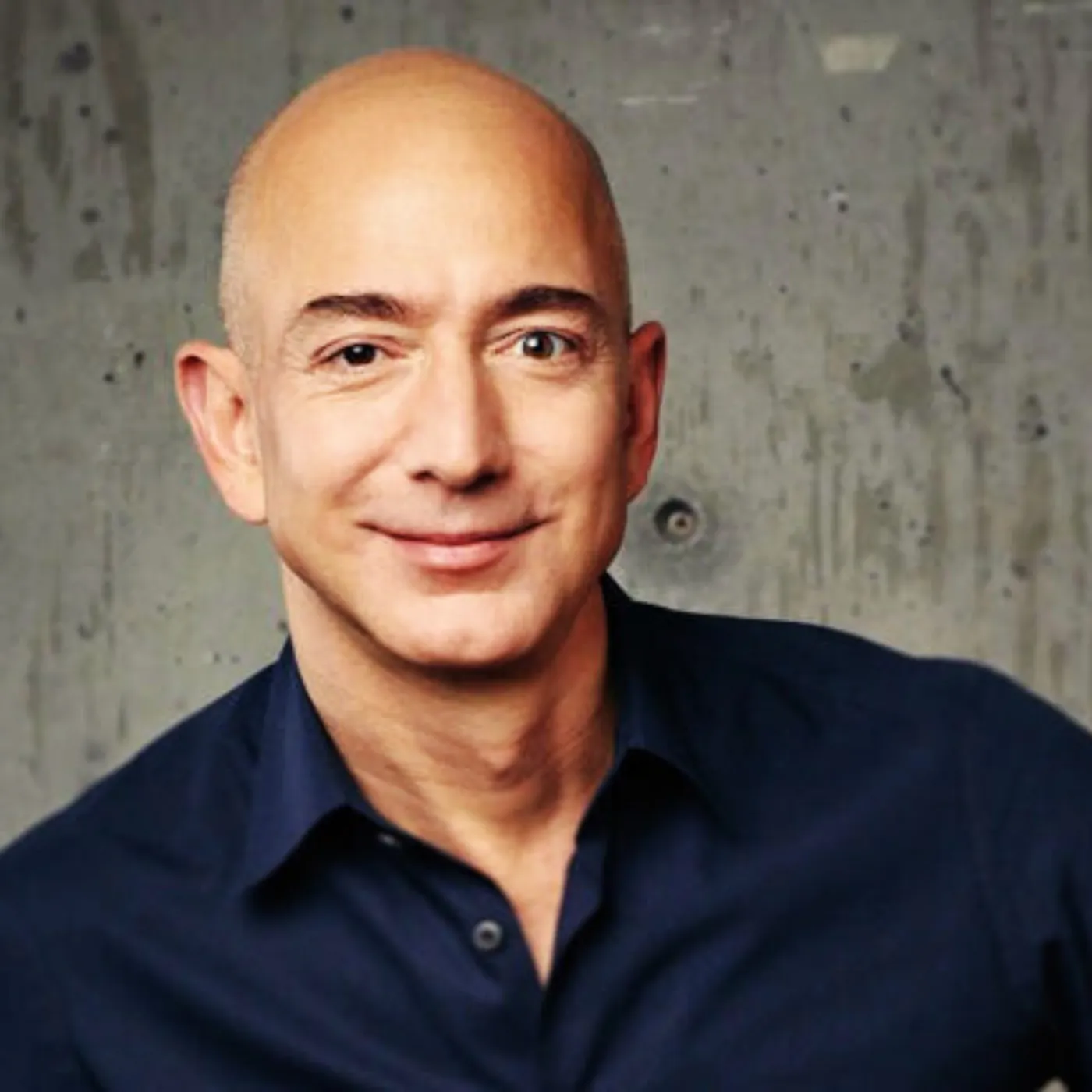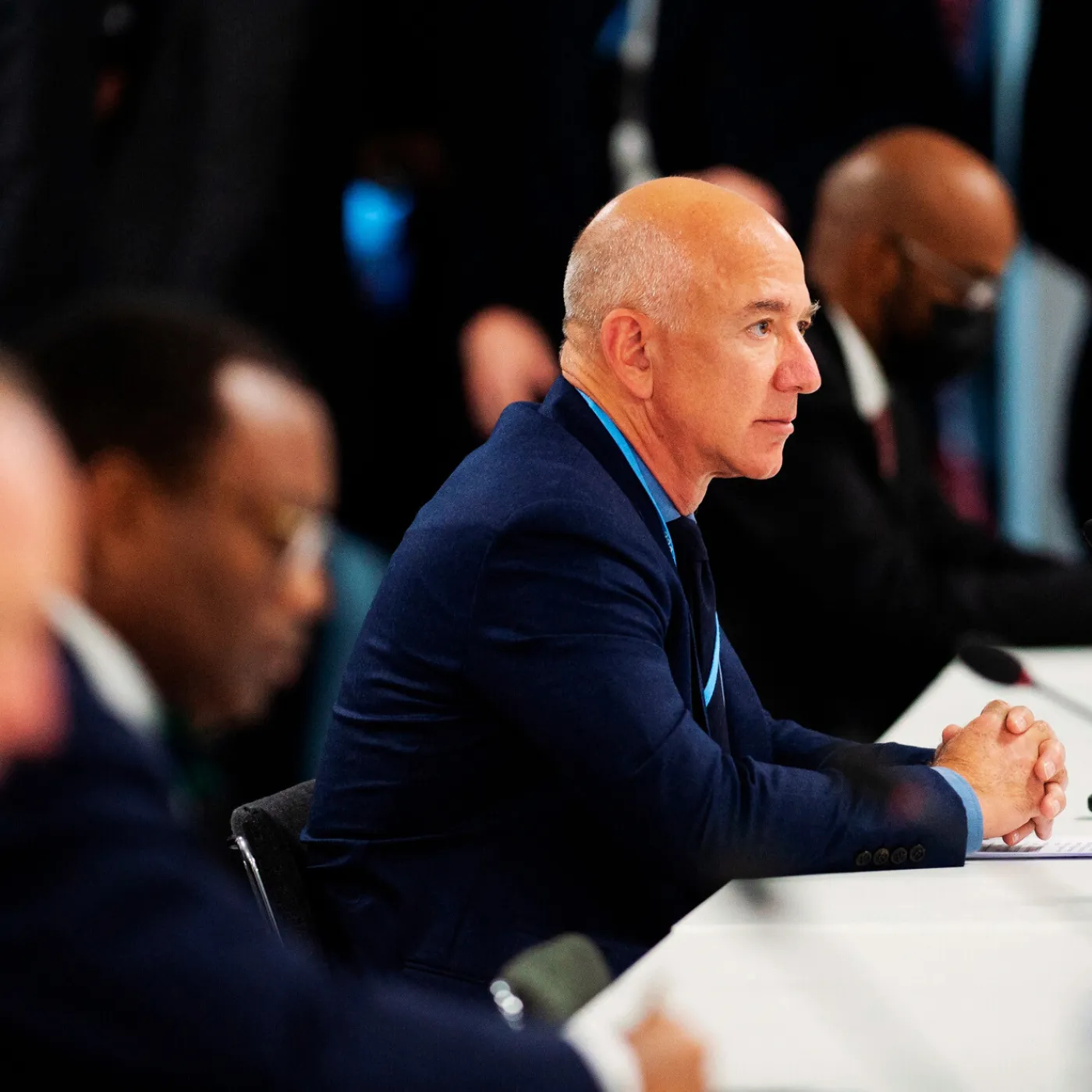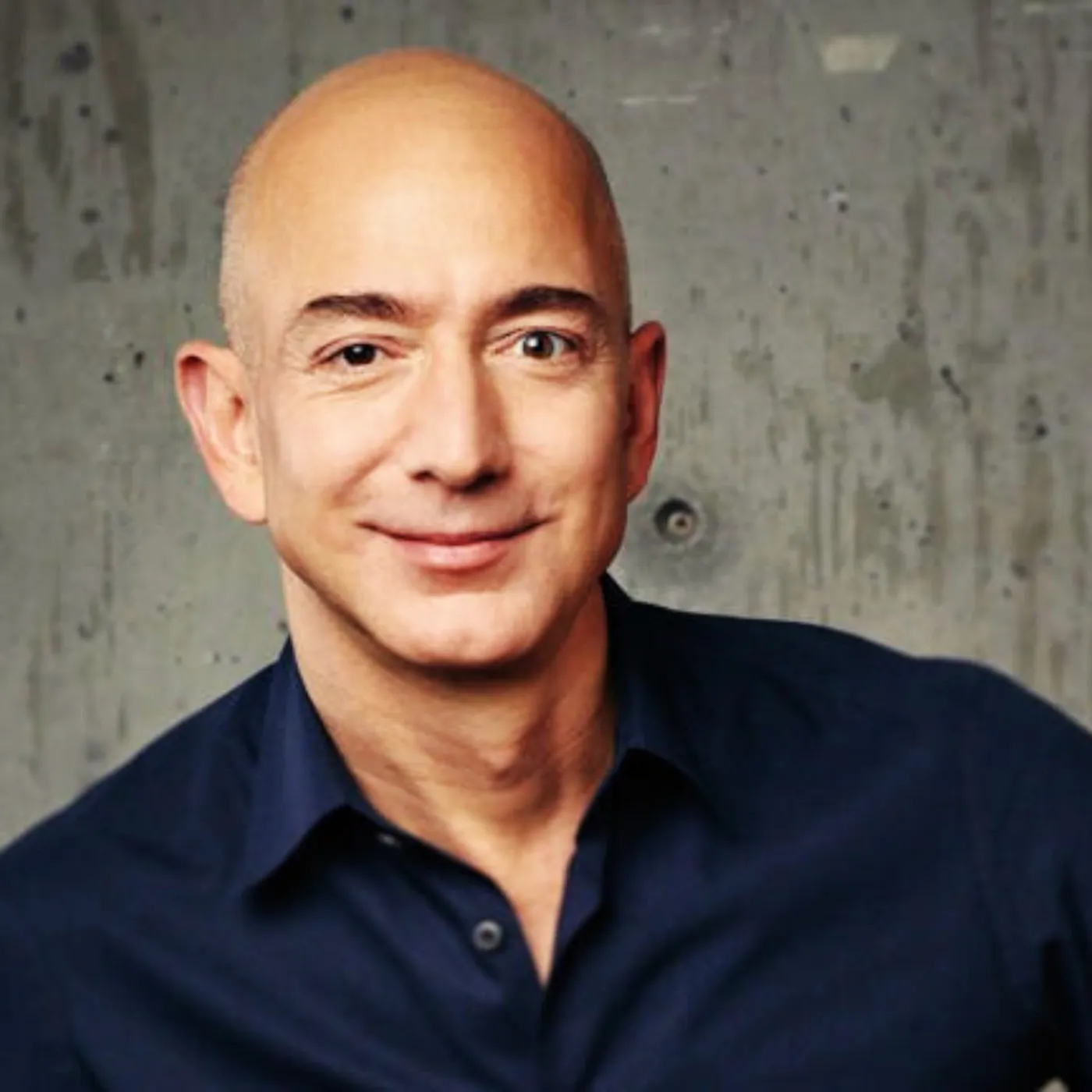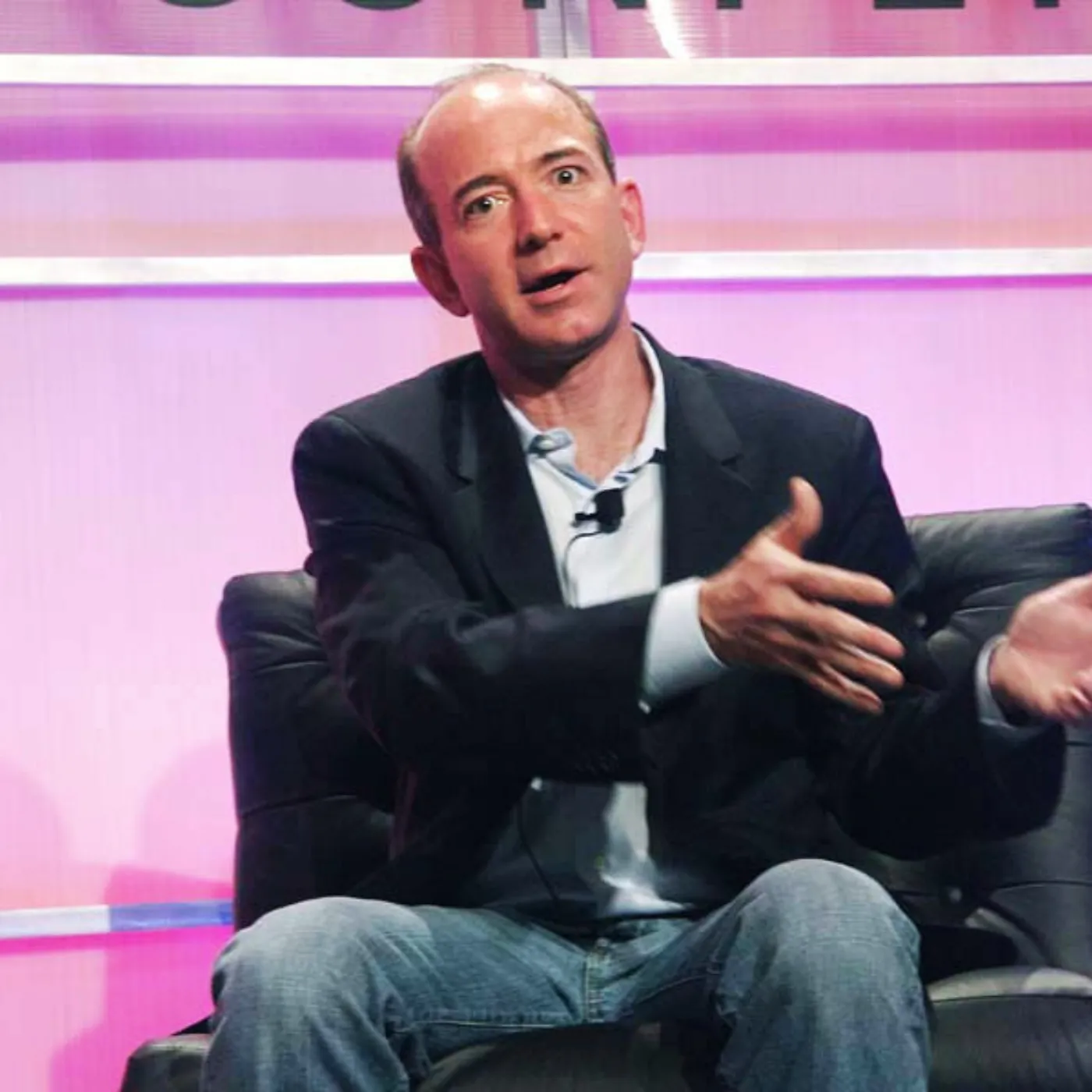

Jeff Bezos Says “Work-Life Balance” is a Lie – Here’s Why You Should Listen
In today’s rapidly evolving workplace, “work-life balance” has become the golden standard that many strive for. Companies tout flexible hours, remote work options, and wellness programs to cater to employees’ growing desire for a balance between their professional and personal lives. But what if this idea is nothing more than an illusion? What if the very concept we consider essential for a fulfilling life is, in fact, “debilitating” and outdated?

Amazon’s founder, Jeff Bezos, one of the most influential figures in global business, has taken a strong stance on this issue. According to Bezos, “work-life balance” is a “debilitating phrase” that limits the potential of employees. The billionaire, who revolutionized e-commerce and built Amazon into a global powerhouse, believes that this traditional notion doesn’t fully capture the intersection of work and life in a modern world.
Instead of advocating for the separation of work and life, Bezos taught his employees that work and life should not be two separate entities but rather a circle that intertwines seamlessly. For Bezos, success comes not from balancing the two but from integrating them in a way that fosters growth, innovation, and relentless ambition.
But what does this perspective really mean? How does it shape the work culture at Amazon and beyond? And is Bezos’ approach a sustainable model for the modern workforce, or is it simply a recipe for burnout and unhappiness? Let’s take a closer look at this controversial statement and what it reveals about Amazon’s corporate philosophy.
The Rise of Bezos’ Work Philosophy
When you think of Jeff Bezos, you likely picture the CEO of Amazon building a multi-billion-dollar empire, changing the way the world shops, and reshaping entire industries. However, Bezos’ approach to leadership goes far beyond logistics, shipping algorithms, and data centers. It’s about creating a culture of total immersion.
Bezos’ thoughts on work-life balance aren’t a random outburst or a one-off comment. Over the years, his perspective on work and life has become central to Amazon’s mission. He has often described the journey to Amazon’s success as an all-consuming pursuit, one that required incredible personal sacrifice and an unwavering commitment to excellence.
Amazon has famously encouraged an extreme work culture—one that pushes the boundaries of what it means to be successful in the workplace. Bezos himself has admitted to sacrificing personal time, including family time, for the sake of Amazon’s growth. In interviews, he frequently emphasized the importance of grit, determination, and the ability to make hard decisions, including prioritizing work over personal life when necessary.
For Bezos, the idea of “work-life balance” implies that there’s a clear line between professional obligations and personal well-being, which he believes is an artificial and counterproductive distinction. His view is that work and life should be blended in a way that makes them more fulfilling, not less.

A Different Approach to Work-Life Balance
What Bezos advocates is not an endorsement of the classic 9-to-5 lifestyle or a call for employees to abandon their personal lives for the sake of work. Instead, it’s about fostering a mindset that integrates both work and personal fulfillment. This philosophy suggests that employees, especially those in leadership roles, should embrace their work as a part of their identity—not something they leave behind at the office door.
For example, Bezos has often spoken about the importance of passion in one’s work. To him, the idea that work is something we “endure” or “tolerate” for the sake of personal freedom or leisure is counterproductive. Instead, Bezos believes that work should inspire joy and energy—just like personal hobbies, relationships, and passions.
This concept is reflected in Amazon’s culture, where employees are encouraged to work long hours and remain committed to the company’s success, often at the expense of their personal time. Amazon’s motto—“Work hard, have fun, make history”—epitomizes this philosophy. The idea is simple: work becomes a central part of your identity, and if you love what you do, you’ll never have to “balance” it with personal life because they become one.
But for many, Bezos’ thoughts on work-life balance can seem like a call to sacrifice everything for the sake of success. Critics argue that Amazon’s culture fosters unhealthy work environments, where employees are pushed to their limits. Stories of Amazon warehouse workers being overworked, underpaid, and treated poorly have raised significant concerns about whether Bezos’ work philosophy is sustainable for the average employee, especially when the company’s focus on maximum productivity may overshadow employee well-being.
The Reality Behind Bezos’ “Circle” Philosophy
Jeff Bezos’ model of the “circle” isn’t just about working around the clock without ever taking a break. It’s about seeing work and life as a unified whole, where personal goals and professional success coexist in a dynamic, ever-evolving loop. Bezos argues that when you are deeply passionate about your work, it becomes inseparable from your personal aspirations.
However, there’s a problem here. While Bezos’ model works well for him—a billionaire who is deeply invested in his business ventures—this isn’t a one-size-fits-all solution. Bezos has the luxury of wealth, status, and power to structure his days as he sees fit. But for the average worker, especially those employed by Amazon, the demands of this kind of immersion can often lead to exhaustion and stress.
Bezos’ model works for those at the top of the corporate ladder, where immersion in work is seen as a necessary and even romanticized part of climbing to the top. However, for many employees, it may create a toxic environment where work consumes every waking moment and personal health, family, and relationships are neglected.
Is Jeff Bezos Right About Work-Life Balance?
In many ways, Bezos’ perspective on work is incredibly innovative—it challenges the traditional views of work as something separate from personal life. But does this philosophy really work for the average employee? Or does it only benefit the elite few who are already at the top?
For many workers, work-life balance is more than just a catchphrase. It represents the ability to have both a fulfilling career and a satisfying personal life. The problem with Bezos’ stance is that it seems to ignore the realities of the modern workforce, where employees are often overworked and underpaid, making it difficult to truly enjoy their personal lives outside of work.
The push for work-life integration could indeed be revolutionary if it led to greater satisfaction, but the line between dedication and burnout can be blurry. Bezos’ ideas on immersion may only be effective for those who can afford to be immersed 100% in their work—people with significant power and control over their schedules.
The reality for many workers is that they are forced to clock long hours, often due to economic pressures and the demands of a competitive workplace. In such an environment, it’s easy to see how Bezos’ view might come off as out of touch, especially when Amazon employees continue to speak out about the stressful working conditions they face in warehouses and offices.

Conclusion: A New Era of Work
Jeff Bezos’ critique of work-life balance challenges our entire approach to how we view work. His circle theory of work and life integration is thought-provoking and undoubtedly appeals to ambitious, driven individuals who are willing to pour their energy into achieving great things. But it also raises important questions about the human cost of such immersion.
Is Bezos right in claiming that we should integrate work into our lives rather than try to achieve some mythical balance? It may work for some, but it’s certainly not the answer for everyone. As businesses continue to evolve and the workforce demands more from their employers, it’s crucial to find a middle ground that allows people to thrive both professionally and personally.
For Jeff Bezos, work and life are one continuous journey, a relentless pursuit of excellence. But for the majority of the workforce, perhaps the real challenge lies in finding a way to embrace work without sacrificing the quality of their personal lives. Only time will tell if Bezos’ philosophy can become a universal standard or if it will remain a model for the few who are willing to take the plunge into a life where work and life become inseparable.


















